Wellfleet Bay Wildlife Sanctuary
Rescuing Cold-Stunned Endangered Sea Turtles on Cape Cod for over 30 Years
Text & Images by NANCY BLOOM
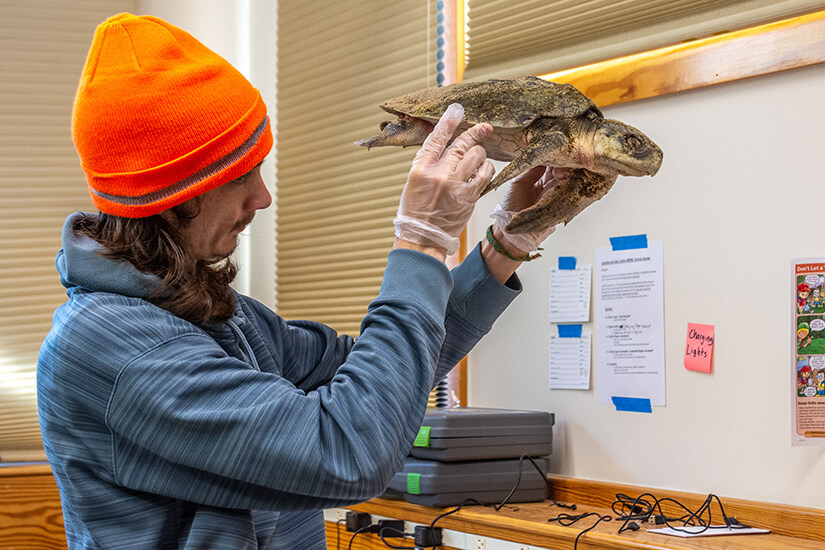

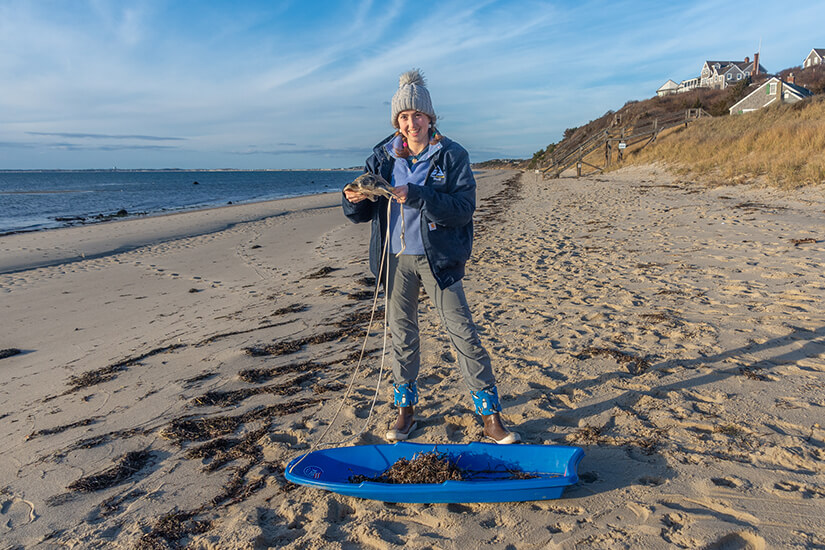

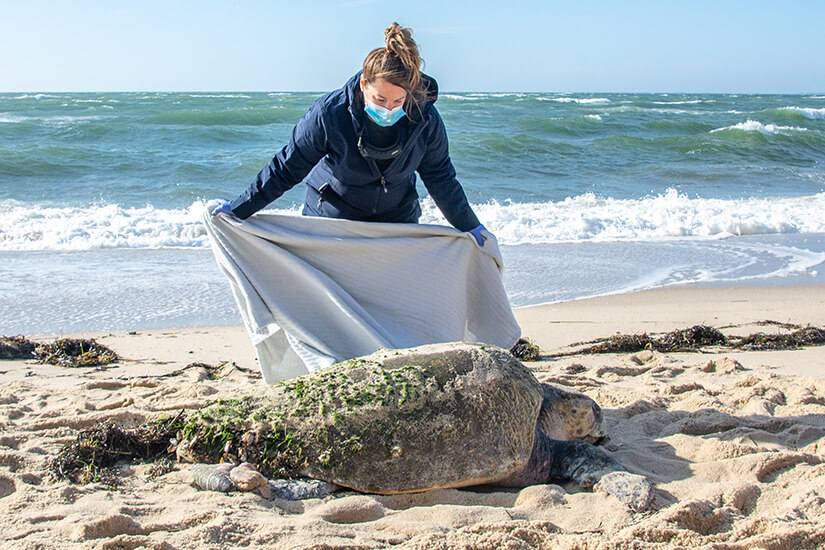






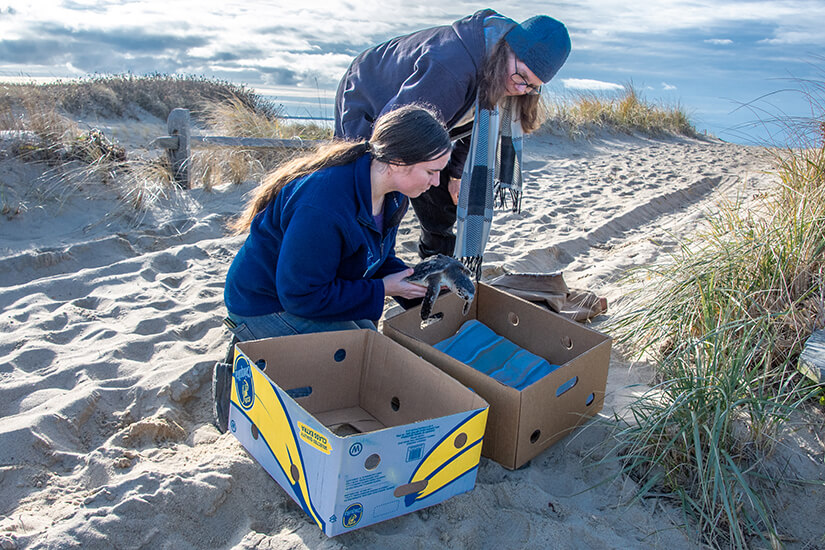

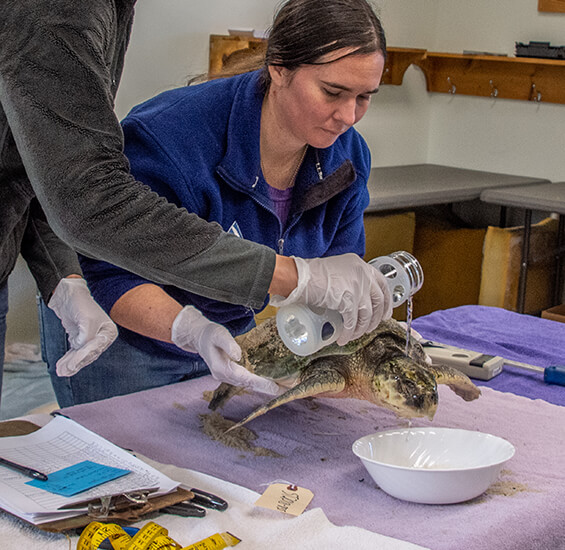

Mass Audubon’s Wellfleet Bay Wildlife Sanctuary, a member of the federal government’s sea turtle stranding network for the Greater Atlantic Region, has rescued over 700 turtles from Cape Cod Bay beaches this year. In past years, volunteers have rescued as many as 1200 turtles, most being Kemp’s Ridley or loggerhead turtles. This year, however, an unusually high number of green sea turtles have been rescued by the many volunteers who walk Cape Cod’s beaches looking for cold-stunned turtles that have been tossed ashore during the high tides.
The body temperature of a sea turtle is regulated by the temperature of the water around them. Green turtles are less cold-tolerant than the other turtles that have washed up. According to Bob Prescott, the founder of the sea turtle rescue program, this may be due to last year being one of the warmest summers for the Gulf of Maine, which includes Cape Cod Bay.
When the water temperatures in Cape Cod Bay decrease and the turtles begin their journey to warmer waters, some of them don’t make it out of the Bay in time to head South. Because of Cape Cod’s hook shape, several turtles get trapped and become disoriented in the currents. When the water reaches about 50°F in November, these disoriented turtles get too cold to eat, drink, or swim and become cold-stunned. During periods of high winds, the turtles are pushed up on shore by high tides and left stranded.
Volunteers search the bay side shores night and day looking for these cold-stunned turtles. Once rescued, the turtles are brought to the Mass Audubon Wellfleet Bay Wildlife Sanctuary in Wellfleet, Massachusetts. They are assigned tracking numbers, examined by trained staff, placed in banana boxes with fresh towels and transported to the New England Aquarium in Quincy, Massachusetts for evaluation and rehabilitation.
The Mass Audubon Sea Turtle Rescue and Recovery Program is the largest annual cold-stun program in the world. Donations can be made at massaudubon.org/seaturtles.